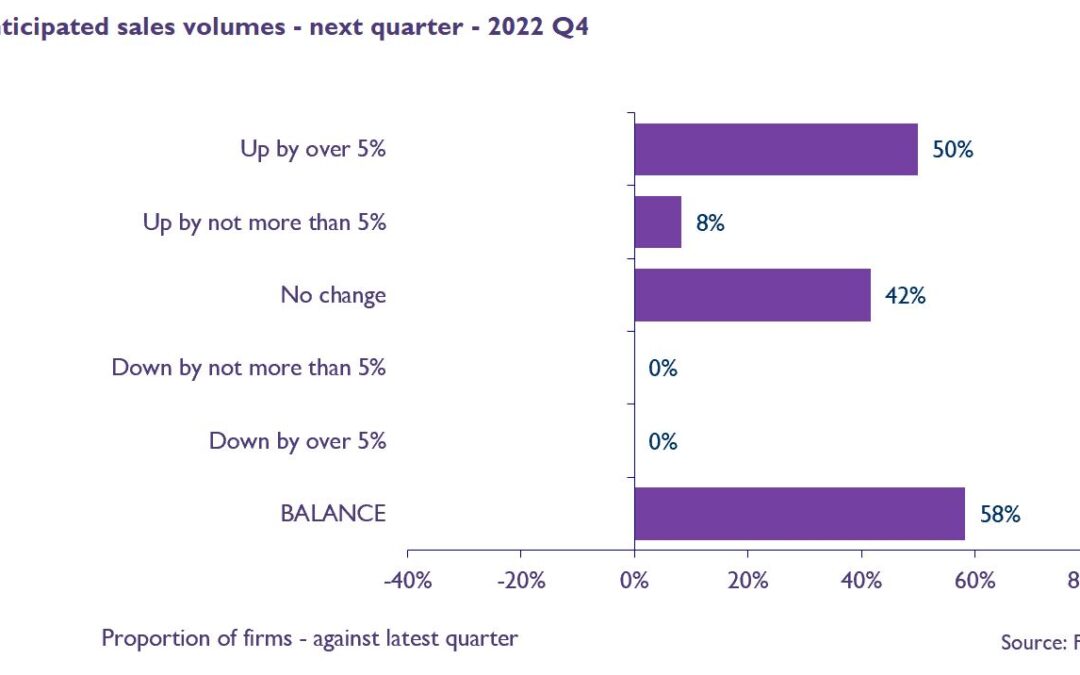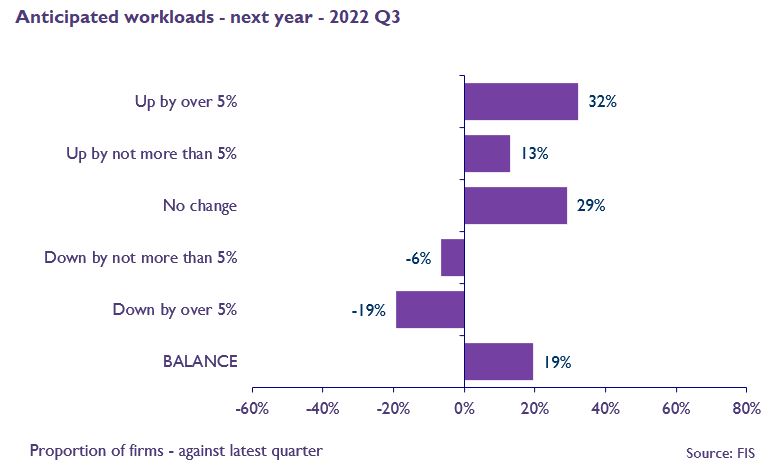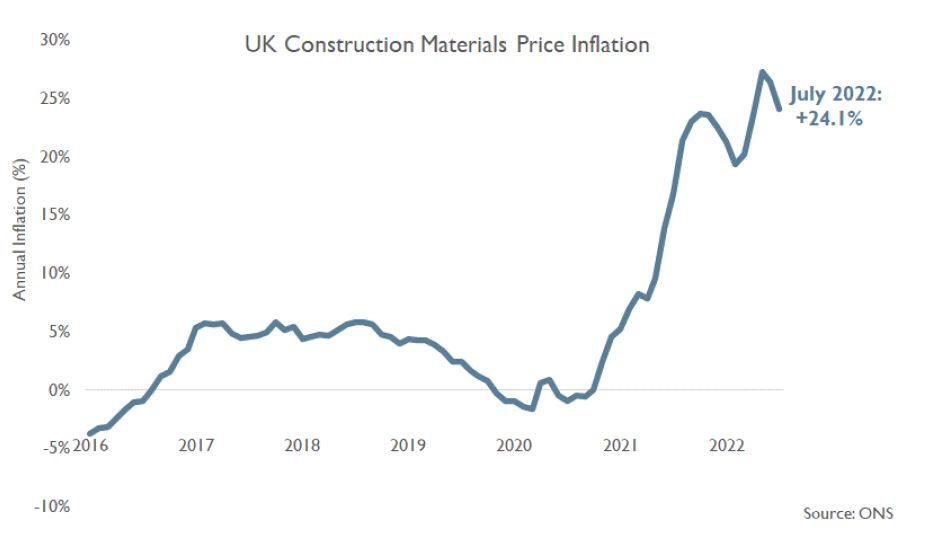
by Iain McIlwee | Feb 23, 2023 | Labour
Whilst the future of Government Immigration Policy remains somewhat unclear, through the CLC, FIS was asked to respond to the Migration Advisory Committee’s interim review of the construction occupations in the Shortage Occupations List (SOL).
We have responded directly focussing specifically on the status of shortages in the finishes and interiors sector and supported the response from CLC which has called for 17 new occupations to be added to the SOL carpenters, painters and decorators, piling rig operatives, dry liners, ceiling fixers, plasterers, roofers, and scaffolders. The outcome of this interim review is expected in March, with a full review of the SOL due to be undertaken later this year.
To view the FIS response which includes our underlying data click here this drew on data collected throughout the year including our Skills Pulse Survey, this is survey is still open and if you have a few minutes to complete the more data the better.

by Iain McIlwee | Feb 23, 2023 | Building Safety Act
The Higher‐Risk Buildings (Key Building Information etc.) (England) Regulations, which introduce the requirement for Principal Accountable Persons to register Higher‐Risk Buildings, will come into force on 6 April 2023. Existing Higher‐Risk Buildings must be registered before October 2023 and the Regulations set out the specific information that will need to be provided to the Building Safety Regulator in an electronic format within 28 days of applying to register a building.
A significant amount of information will be required, including the materials used in the structure, roof and external walls; the number of staircases; the fire and smoke control equipment in the building; and the type of evacuation strategy. Detailed guidance from the Building Safety Regulator is expected to be published shortly with full implementation of the Building Safety Act completed by October 2023.
Commenting on this incoming requirement, FIS CEO, Iain McIlwee stated:
“This is an important development and underpins the need for better information management in the sector. For our members, the critical takeaway is that we need to ensure that we are documenting effectively decisions and recording as built.
This hunt for live information has uncovered problems and we are starting to see a growing number of legacy claims hit the press. Within these Design Development elements in the contract are front and centre and proving critical. For projects moving forward, clarification and qualification of design details needs to be an element of pre-construction that should happen at tender stage, not on the site under time and cost pressure.”
FIS is running a Building Safety Act session at our Conference in London on Monday 27th February where we will be looking at common problems, what the inspector will be looking for and how we deliver the Golden Thread. We also have a detailed introducton to the Building Safety Act here that includes a number of tools designed to support compliance, including our new Guide to Developing a Competency Management Plan and Quality Management Toolkit.
For advice and guidance on spotting traps and understanding design liability issues (including how to avoid being the accidental designer) visit the FIS Contractual and Legal Toolkit.

by Iain McIlwee | Feb 22, 2023 | Material Shortages
Statement from John Newcomb, CEO of the Builders Merchants Federation and Peter Caplehorn, CEO of the Construction Products Association, co-chairs of the Construction Leadership Council’s Product Availability working group
The past month has seen yet more improvements in the balance of product demand and supply, with good availability for most construction products and prices no longer as volatile.
While demand has slowed in recent months, work in every major construction sector, apart from commercial, remains above pre-pandemic levels.
The slowdown has allowed brick manufacturers to rebuild stocks to their highest levels since May 2021. While there are some exceptions, manufacturers are reporting up to 8 weeks supply for most brick types at current demand levels.
The availability of gas boilers has also improved. With their supply chains returning to normal levels, availability increased by over 20% in January 2023 compared with January 2022.
Wholesalers in the electro-technical sector report their number one operational challenge is still “product availability and price issues” with longer lead times experienced for solar products including inverters, batteries and mounting systems.
In addition, the problems in the supply and pricing of EV chargers linked to regulatory changes, reported in detail in our January statement, remain a major concern. Installers should check the provenance with their wholesalers and request a Statement of Compliance and, if applicable, an Enforcement Undertaking.
Currently, there are large stocks of most grades of timber in the UK. The exceptions being birch plywood and Siberian larch cladding, which come from Russia, but substitute products are available.
As reported last month, price inflation has largely stabilised with some suppliers deferring price increase as demand slows. Gas prices appear to be easing and many larger energy intensive manufacturers have likely hedged a high proportion of their energy costs for the year ahead. Nonetheless, the impact on manufacturers from high energy costs often takes months to feed through to product prices – especially for energy-intensive products and materials – so the volatility from late 2022 may still be felt into the spring. Inflationary pressures on other costs, especially labour, continue and may well impact prices later in the year.
The Product Availability Group is monitoring potential impacts from the earthquake in Turkey that could disrupt supply chains. While nothing major has been reported to date, Turkey is one of the world’s largest exporters of raw iron bars and Turkish ports are key connections for steel rebar and structural steel global trade. There may be longer term ramifications, for both materials and labour, when rebuilding begins.
To take part in the latest FIS Wage Rate and Productivity Survey, click here (results are only shared with participants)
For all the work FIS is doing around inflation and availability, including recommended contractual terms click here

by Iain McIlwee | Feb 7, 2023 | Market data
According the the latest FIS State of Trade Survey, the finishes and interiors finished 2022 relatively strongly with a net balance of 42% experienced growth in sales (against 17% in Q3) and 50% of those responding to the FIS State of Trade Survey reporting sales volumes increasing by over 5% (up from 33% reporting the same in Q3).
Looking ahead to 2023, again the picture for sales is more positive than in Q3 with those predicting growth swinging from just 20% to 75%. There is, however, an acceptance that some projects will slip and not all will turn into boots on the ground and the overall impact on anticipated workload is that there is a slight downward trend with just 33% predicting growth (versus 45% in Q3).
The majority anticipate static market conditions for the year ahead, with a small swing in terms of those predicting a decline (up to 26% from 25% last quarter) resulting in a net balance predicting growth of 9%. This is slightly less optimistic than in Q4 2021 when a net balance of 18% were predicting an increase in workloads.
You can read the full findings, including an update on inflation and investment in the FIS State of Trade Survey Q4 2022 here.
FIS data is absorbed into the wider CPA State of Trade Survey – you can see the full results and findings here.

by Iain McIlwee | Feb 1, 2023 | Transformation
This week Kevin Hollinrake MP, Minister for Enterprise, Markets and Small Business Government opened a consultation into Payment Practices and Performance Regulations 2017. The consultation is looking primarily at whether the Regulations should be extended beyond their current expiry date of 6 April 2024. It also provides an opportunity to consult on other potential amendments and improvements to the Regulations resulting from the views expressed by those who responded to the recent statutory review.
The consultation sets out proposals on:
- amending the expiry date to extend the Regulations beyond 6 April 2024
- including an additional value reporting metric
- referencing payment reporting in a company’s director’s report
- a clarification of how supply chain finance is reported
- including a new metric on disputed invoices
- retention payments in the construction sector
FIS fed into the initial review via the Small Business Commissioner and will be responding to the consultation on behalf of our membership.
FIS continues to speak out on poor practice witnessed in construction (see recent article in Construction News – FIS CEO calls out Payment Practices). We will be also be drawing on research recently conducted with the University of Reading that has highlighted “46% of subcontractors reported waiting for 40-59 days in comparison to only 24% of main contractors. Perhaps most strikingly, only 6% of specialist subcontractors reported being paid within 30 days.”
Specifically on retentions the consultation is exploring:
Question 6: Do you agree that the Regulations should be amended so that payment practice and performance reports should include information on the standard retention payment terms in qualifying construction contracts?
Question 7: Do you agree that the Regulations should be amended so that payment practice and performance reports should include statistical information on retention payments?
But, it should open up an opportunity to raise more broadly concerns over retentions and our response will draw on questions raised in the research conducted with the University of Reading.
If you are interested in feeding directly into the consultation, you can access all the information here. Please do send a copy of any response or thoughts that you would like embraced in the FIS response to iainmcilwee@thefis.org. Equally if you want to talk through your views, don’t hesitate to call Iain on 0121 707 0077.
You can see the current FIS position on retentions here along with our wider approach to concerns over procurement and payment fairness in the sector.

by Iain McIlwee | Jan 30, 2023 | Building Safety Act
This weekend we heard Rt Hon Michael Gove’s (Secretary of State for Levelling Up, Housing and Communities) candid admission that Building Regulations were “faulty and ambiguous” in the run-up to the Grenfell Tower fire. This was, however, backed up with an assertion that there had been an “active willingness” on the part of developers to endanger lives for profit.
Gove’s mantra remains “polluter pays” and these comments were followed by a letter issued to developers today (30 January 2023) saying that Government expects them to sign a newly published ‘developer remediation contract’ as soon as possible.
Last year, 49 developers signed a public pledge committing to do the right thing to protect leaseholders and residents. Once signed, the contract will make those commitments legally binding., the contract will require developers to:
- Take responsibility for all necessary work to address life-critical fire-safety defects arising from design and construction of buildings 11 metres and over in height that they developed or refurbished over the last 30 years in England.
- Keep residents in those buildings informed on progress towards meeting this commitment.
- Reimburse taxpayers for funding spent on remediating their buildings.
The government has made clear that developers who refuse to sign the contract or fail to comply with its terms face significant consequences.
Commenting on the letter FIS CEO Iain McIlwee stated:
“This letter is a significant moment for construction and, whilst it is positive that the weight has rightly been lifted from the leaseholder, it darkens the shadow that hangs over the construction sector.
The inevitable next step is, for the developers that sign, to start to look to offset their liabilities onto the supply chain. They will engage lawyers to pull out heavily ammended standard form contracts, contracts that even the Government’s own Industrial Strategy recognise “can unfairly transfer legal risk” and that did not reflect the true working practices at the time. Cases like LDC vs GDC vs ESL and Mulallely vs Martley Homes start to give us insight into how this will play out.
The Building Safety Act is undoubtedly a force for long term good, but to truly support transformation in the shorter term it needs to be mirrored by a tightening of the Construction Act and some protection to SMEs in the supply chain. My fear now is that this opens the door to conflict and cost – adversarial behaviours will undermine change and resources that would be better expended on transformation and putting right mistakes of the past will be wasted”.
You can read the full letter from Richard Goodman, Director General, Safer and Greener Buildings Department for Levelling Up, Housing and Communities and view the proposed contract here
Read FIS Overview of the Building Safety Act here

by Iain McIlwee | Jan 24, 2023 | Material Shortages
The Construction Leadership Council issued the latest Product Availability Statement today:
The new year has started in much the same way as the last one finished, with product availability continuing to improve for almost all products and in all regions. This is, in part, due to a reduced level of activity, with poor weather and a delayed return to sites after the Christmas break contributing to a slow start to 2023.
For some, there remains an ongoing problem in relation to gas boilers and M&E products, where the issue is the global supply chain for semi-conductors rather than the UK supply chain.
In some regions, bricks, blocks and roof tiles remain on allocation, but with manufacturers managing deliveries and builders’ merchants adjusting to the situation and carrying extra stock, the majority of end-users are not experiencing shortages. Brick stocks are also increasing, and a new plant will come on stream in 2024.
Price inflation has also stabilised. Timber prices have continued to fall but are expected to increase in Q2 as European mills are reducing production over winter. The price of some energy intensive products, such as bricks, cement and PIR insulation, increased by around 10% in January due to energy and distribution costs. However, with continuing economic uncertainty, some suppliers have deferred price increases, but with general inflation still above 10%, these are likely to be implemented by Q2.
The electro-technical sector is reporting delays for solar products (including inverters, batteries and mounting systems), and also the supply of EV chargers is an increasingly problematic area. Following regulatory changes in December 2022, manufacturers have updated their products or are granted an Enforcement Undertaking by the Office for Product Safety and Standards (OPSS) which allows them to continue to trade while they work towards product compliance. There is a fear that cheap imports which are not compliant with the latest regulations may reach the market. Installers should check the provenance with their wholesalers and request a Statement of Compliance and, if applicable, an Enforcement Undertaking.
Shipping costs from the Far East have vastly improved, with container costs dropping nearly 80% from last year’s high now nearing pre-Covid levels. However, a surge in Covid in China is affecting all points of the supply chains there. These problems are expected to continue through the Chinese New Year, with most factories closing from 16-29 January.
Looking further ahead there is considerable uncertainty forecasting demand for the coming year particularly for domestic RMI work and increasingly for new housing, where higher mortgage rates and the end of the Help to Buy scheme at the end of March are expected to slow new sales. Other areas, however, continue to see strong demand, particularly for industrial, commercial, infrastructure and government projects.
Statement from John Newcomb, CEO of the Builders Merchants Federation and Peter Caplehorn, CEO of the Construction Products Association, co-chairs of the Construction Leadership Council’s Product Availability working group
Commenting on the statement FIS CEO, Iain McIlwee stated:
“Whilst we are starting to see some hope on the horizon in terms of inflation abating, but we aren’t out of the woods yet. In addition to the problems outlined above, the New Year started in our sector with a new and significant round of price rises for plasterboard and plaster. We need to be careful and realistic in our pricing and continue to work with the supply chain to ensure that this is managed and we don’t just load it onto the specialists who simply cannot just absorb this.”
For all the work FIS is doing around inflation and availability, including recommended contractual terms click here

by Iain McIlwee | Jan 20, 2023 | Building Safety Act
New Guidance has been published by the Home Office to help conduct routine checks on fire doors and provide information to residents. This guide is aimed at Responsible Persons carrying out simple checks upon a fire door. It is based on the assumption that the fire risk assessment has already assessed the suitability of the fire doors.
This short guide is intended to assist those with duties under the Fire Safety (England) Regulations to comply with regulation 10, which makes requirements about fire doors in all buildings that contain two or more domestic premises and that contain common parts, through which residents would need to evacuate in a fire.
Regulation 10 makes requirements in relation to two matters, namely:
- information about flat entrance doors that the Responsible Person must give to all residents (whether tenants or leaseholders) – this requirement relates to all blocks of flats
- routine checks of fire doors that the Responsible Person must ensure are carried out – these checks are only required in blocks of flats in which the top storey is more than 11m above ground level (typically, a building of more than four storeys)
The guidance includes a simple checklist.
The Fire Safety (England) Regulations 2022 were placed on the statute book on 18 May 2022, and came into force on 23 January 2023.
The full guidance is available here

by Iain McIlwee | Jan 18, 2023 | Labour, Main News Feed
FIS is working with No Going Back (NGB), an innovative programme of training, support, employment, and housing funded and driven by 35 Livery Companies working collaboratively to reduce re-offending.
With Employment being such a major part of changing people’s lives when people leave prison, helping to dramatically reduce the likelihood of reoffending, between 23 January – 3 of February 2023, New Futures Network are hosting ‘Unlocking Construction’ employment events in prisons across England & Wales. and NGB are delighted to be a part of this in HMP Onley, Brixton, Wandsworth, and Thamesmead.
HMP Wandsworth and HMP Onley would like to invite Employers from the Construction Industry inside to be part of a special employment event on Wed 25 January (Wandsworth) and Wed 1 February (Onley) to support men into sustainable jobs in the construction sector upon release. This could be men with experience or those who are looking to pursue a new career in the sector. As more than 80% of men released from HMP Onley return to London and the Home Counties, many fantastic potential candidates are keen to find out about jobs on release.
For those attending, the events will follow the format:
HMP Wandsworth – Wednesday 25th January at 1:30 pm (likely finish time 4pm)
An interactive session in the Bounce Back Dry Lining workshop for serving prisoners who are interested in working in Dry Lining – some are currently doing the dry lining training course, and others have completed it.
This event is to improve their awareness of, and access to information on further training and employment opportunities available by introducing them directly to specialists and employers in the sector. It would give the men a chance to raise any questions to address challenges or concerns relating to employment or training within the sector. The prison will also pre-select a couple of men who are work-ready and approaching release for employers to speak with individually.
HMP Onley – Wednesday 1st February at 8:30 am (likely finish time is 4pm) POSTPONED DUE TO RAIL STRIKE, BUT IF YOU WANT TO BE KEPT UP-TO-DATE ON THE REVISED DATE, USE THE CONTACT LINKS BELOW
HMP Onley are hosting a Construction Fair on the day, with a cross-section of employers from the industry to support men into sustainable employment upon release. This could be men with experience or those who are new and looking to pursue a career in construction.
They are running a morning and afternoon session to allow more prisoners to take part and fit around the prison regime. More than 80% of men released from HMP Onley return to London and the Home Counties, there are many fantastic potential candidates who are keen to find out about jobs on release. For employers attending, there would also be an opportunity to have a prison tour to visit the Industry Workshops and recently launched Employment Hub. Training programmes running in this facility include Dry Lining, Carpentry and Joinery and Flooring.
NGB are also happy to facilitate visits in other prisons.
If you are interested in attendng one of these prison visits or finding out more about opportunities to engage in a programme in your local area (or arranging a seperate arrangement for these two facilities), please email jokeane@bouncebackproject.com asap (copy beenanana@thefis.org) or call the FIS on 0121 707 0077.

by Iain McIlwee | Jan 13, 2023 | Transformation
FIS has supported CICV (a collaborative construction trade body in Scotland) in developing a new major new survey to help establish an overview of the current state of payments and cashflow in the Scottish construction industry.
Created by the CICV’s Pipeline & Commercial sub-group, the answers will help us shape a strategy to address ongoing issues, in consultation with the Construction Leadership Forum and The Scottish Government.
Commenting on the survey, FIS CEO Iain McIlwee stated:
“This is another important piece of work that the CICV is doing and it is great to see a genuine focus on collaboration across the wider sector once more being emodied through this group. With the Government’s Payment review announced, we need to be honest about where we are as an industry – this is something we at FIS will really be stepping up the ante on this year. Getting to the real data will help spotlight real concerns and instruct how legislation (and behaviours) need to change. Poor payment practices and process management around payment are a cancer at the core of construction. Please share your data so together we can drive change.”
FIS encourage anyone who works in construction to take part in the survey, which closes on 27 January and can be accessed here.
All answers are confidential.
December 2022 FIS CEO calls out Payment Practices
To fnd out more about FIS Campaigning in this area click here.

by Iain McIlwee | Jan 11, 2023 | Transformation
The case of LDC (PORTFOLIO ONE) LIMITED vs (1) GEORGE DOWNING CONSTRUCTION LIMITED (GDC) EUROPEAN SHEETING LIMITED (ESL). Starts to give fresh insights into how claims will be heard in the new compliance landscape.
The case related to external wall works carried out by ESL under a sub contract to GMD Developments Ltd (the main contractor). Both contractors were retained on a design and build basis and both issued collateral Deeds of Warranty dated 17 October 2008 in favour of the then employer, GMD. Those Deeds of Warranty were subsequently assigned by GMD to LDC (the employer).
The works related to three blocks, each over 18m high, and each with a different configuration of external wall cladding. In each case, on the inside of the external wall cladding there is a breather membrane and Structural Insulated Panels (“SIPs”). The SIPs were fixed to the structural concrete frame of each block. The case is built on the fact that that following water ingress issues and subsequent investigations into the as-built Property, it was discovered that:
- There are several defects in the external wall construction of the composite cladding elevations which have led to water ingress and deterioration of the SIPs.
- There are fire barrier and fire stopping issues on all elevations; including in relation to the cavity barrier provision between the outer face of the SIPs and the rear face of the cladding panels on the Cor-ten elevations, and between the rear of the SIPs and the concrete slab and between SIPs, on all elevations.
Other material factors were that GMD had already agreed to a settlement of £17,650,000 with LDC, so the judgement being sought was related to LDC’s claim against ESL in the sum of £21,152,198.87 calculated as follows:
- Cost of remedial works: £16,457,825.87; and
- Loss of Income: £4,694,373.00; and
- Downing’s claim for an indemnity and/or contribution against ESL in the sum of£17,650,000 together with Downing’s reasonable costs of defending the claim brought against it by LDC
The Judge found in favour of the Claimant and ESL were required to meet the full costs. The case raises a number of issues.
The first is that it was heard despite the fact ESL are currently in Liquidation. This means that any liability is likely to be met via a Professional Indemnity claim against the collateral warranty. What is not clear is whether cover is commensurate with the claim or whether any subsequent claim could be brought against duty holders associated with ESL to meet any shortfall. The judgement itself is silent on this, but new legal precedence has been created by the Building Liability Order is yet to be tested. On this aspect, this may not be the last we hear from this case.
The second is that it was 15 years ago – remember the Defective Premises Act now allows retrospective claims to go back 30 years (reverting to 15 years on jobs that started after the Building Safety Act was introduced in 2022).
Another important point is that the case rests not on whether the cladding needed to be removed due to the original selection of the SIPS system (it was replaced with SFS), but to address moisture ingress creating structural issues and uncovering fire safety concerns during investigation. Consequently this judgment makes no reference to initial manufacturer claims. Worth dwelling on is that whilst, for the purposes of remediation a new cladding system was selected and the judgment made reference to “post-Grenfell enhanced Regulation”, the premise of the case is that the works themselves fell short of the requirements due to moisture ingress creating structural concerns and residual fire safety concerns related to changes to the specification during the construction process. In her findings the Judge, Ms Buehrlen KV, concurred that it was more cost effective to replace the entire system and SFS was a better alternative in the wake of new guidance. The comments from Technical Witness Mr Fung are interesting in the reference whether the need to replace was proportionate, but the defence seemed to rest on the fact that any remedial encapsulation would not represent a tested solution. The whole case doesn’t really get into the original specification and whether the potential would be a need to replace regardless due to new cladding legislation. It is what we don’t know here that stands out here.
Another and perhaps the most significant aspect of the case is that a design change was pivotal to the judgement and attempts to caveat changes by ESL were not accepted. This judgement centred on design detailing (i.e. missing verticle fire breaks and EPSM Membrane based on the original Architectural Specification) and workmanship (i.e. missing fixings and issues with the horizontal fire breaks) associated with the original cladding specification. Failings and subsequent damage caused by water ingress to the original cladding system meant it was deemed to be structurally unsound and there were concerns about the fire safety raised.
ESL claim that they were instructed to omit the vertical cavity barriers and EPDM included in the Architectural Specification. We are not party to where, how and why the decision was made around removing fire breaks, but ESL did as a result of the claim that they were “instructed to omit” attempt to exclude the provision of fire breaks from their contractual responsibility. The judgement refers to emails and ESL in their original defence maintained that they were not responsible for the design of cavity barriers and they were instructed to omit the EPDM which caused or contributed to the water ingress issues. Much we don’t know, but if there was pressure put on them to value engineer, a buildability issue was uncovered or whether any external advice was provided, it was not recorded and presented in a manner that convinced the judge that ESL were not ultimately responsible. The Judge determined that these elements were intrinsic to the “design of the cladding and rainscreen” to deliver compliance and so regardless of the attempt to exclude and ESL was left with the liability. The balance between these elements and workmanship issues was not discussed.
In conclusion the judge references the details from the Mulalley case in so far as “Building Regulation Compliance” falls under “Reasonable Skill and Care” in design and meetiing “All Statutory Requirements” in the case of the D&B Sub Contract. The judge determined that the attempts to caveat elements of the design doesn’t supersede a contractual obligation to meet “All Statutory Requirements”. It is unclear to me in the judgement how or why these decisions were reached.
Whilst the full implications of this judgement are yet to be determined, it does throw up some concerns for sub-contractors both in terms of the potential for legacy claims, underpins the need to ensure any change to the specification is appropriately signed off and to exercise caution in terms of the assumption that an express caveat releases a party from their core contractual requirements.
This article was prepared by Iain McIlwee and provided in good faith based on initial reading, FIS Lawyers will be looking in more detail at the full implications of this case and potential precedent set.
This judgement has not, at the time of writing been uploaded to the BAILII website, but will appear here imminently, if you are interested to read the full transcript in the interim email iainmcilwee@thefis.org

by Iain McIlwee | Jan 10, 2023 | Material Shortages
The government announces the new “Energy Bills Discount Scheme” for UK businesses, charities, and the public sector from April.
- Scheme will provide a discount on high energy costs to give businesses certainty while limiting taxpayers’ exposure to volatile energy markets
- Businesses in sectors with particularly high levels of energy use and trade intensity will receive a higher level of support.
A new energy scheme for businesses, charities, and the public sector has been confirmed today (9th January), ahead of the current scheme ending in March. The new scheme will mean all eligible UK businesses and other non-domestic energy users will receive a discount on high energy bills until 31 March 2024.
This will help businesses locked into contracts signed before recent substantial falls in the wholesale price manage their costs and provide others with reassurance against the risk of prices rising again.
The government provided an unprecedented package of support for non-domestic users through this winter, worth £18 billion per the figures certified by the OBR at the Autumn Statement. This is equivalent to the cost of an increase of around three pence on people’s income tax.
The government has been clear that such levels of this support, unprecedented in its nature and huge scale, were time-limited and intended as a bridge to allow businesses to adapt. The latest data shows wholesale gas prices have now fallen to levels just before Putin’s invasion of Ukraine and have almost halved since the current scheme was announced.
The new scheme therefore strikes a balance between supporting businesses over the next 12 months and limiting taxpayer’s exposure to volatile energy markets, with a cap set at £5.5 billion. This provides long term certainty for businesses and reflects how the scale of the challenge has changed since September last year.
The Chancellor of the Exchequer, Jeremy Hunt, said:
My top priority is tackling the rising cost of living – something that both families and businesses are struggling with. That means taking difficult decisions to bring down inflation while giving as much support to families and business as we are able.
Wholesale energy prices are falling and have now gone back to levels just before Putin’s invasion of Ukraine. But to provide reassurance against the risk of prices rising again we are launching the new Energy Bills Discount Scheme, giving businesses the certainty they need to plan ahead.
Even though prices are falling, I am concerned this is not being passed on to businesses, so I’ve written to Ofgem asking for an update on whether further action is action is needed to make sure the market is working for businesses.
From 1 April 2023 to 31 March 2024, eligible non-domestic customers who have a contract with a licensed energy supplier will see a unit discount of up to £6.97/MWh automatically applied to their gas bill and a unit discount of up to £19.61/MWh applied to their electricity bill, except for those benefitting from lower energy prices.
A substantially higher level of support will be provided to businesses in sectors identified as being the most energy and trade intensive – predominately manufacturing industries. A long standing category associated with higher energy usage; these firms are often less able to pass through cost to their customers due to international competition. Businesses in scope will receive a gas and electricity bill discount based on a supported price which will be capped by a maximum unit discount of £40.0/MWh for gas and £89.1/MWh for electricity.
Energy Bill Discount Scheme summary
For eligible non-domestic customers who have a contract with a licensed energy supplier, the government is announcing the following support:
- From 1 April 2023 to 31 March 2024, all eligible non-domestic customers who have a contract with a licensed energy supplier will see a unit discount of up to £6.97/MWh automatically applied to their gas bill and a unit discount of up to £19.61/MWh applied to their electricity bill.
- This will be subject to a wholesale price threshold, set with reference to the support provided for domestic consumers, of £107/MWh for gas and £302/MWh for electricity. This means that businesses experiencing energy costs below this level will not receive support.
- Customers do not need to apply for their discount. As with the current scheme, suppliers will automatically apply reductions to the bills of all eligible non-domestic customers.
For eligible Energy and Trade Intensive Industries, the government is announcing:
- These businesses will receive a discount reflecting the difference between a price threshold and the relevant wholesale price.
- The price threshold for the scheme will be £99/MWh for gas and £185/MWh for electricity.
- This discount will only apply to 70% of energy volumes and will be subject to a ‘maximum discount’ of £40.0/MWh for gas and
Included in the list of energy intensive industries are:
Businesses in England will also benefit from support with their business rates bills worth £13.6 billion over the next five years, a UK-wide £2.4 billion fuel duty cut, a six month extension to the alcohol duty freeze and businesses with profits below £250,000 will be protected from the full corporation rate rise, with those making less than £50,000 – the vast majority of UK companies – not facing any corporation tax increase at all.
A full factsheet on what this means for business is available here.

by Iain McIlwee | Dec 23, 2022 | Main News Feed, Transformation
FIS CEO Iain McIlwee has called out payment practices in the construction sector in a hard hitting article in Construction News this week.
In the article Iain raises the concern that payment conditions are worsening (reported by 21% of FIS Members), with particular issues occurring at the year end. He points out that, whilst average invoice payment times of main contractors with a Duty to Report are reportedly down to 31 days, this masks what is actually happening the ground and the myriad of issues associated with payment applications, pay less notices, certification and underpaying which are picked up in reporting.
A contributing FIS Member who wished to remain anonymous added:
“I am sick to death of begging for money. It isn’t just Christmas. It goes on all year, but definitely gets worse as we move to reporting periods. I attend meetings all the time where I am told businesses pride themselves in paying on time, but it is the spurious underpayments and unsubstantiated pay less notices that they don’t talk about. It feels like death by a thousand cuts.”.
The full article, which you can read here provides first hand accounts of the way in which contractors are being treated and reflects on the impact on relationships and mental health in the sector as well as wasted time and limiting ability to invest and transform. Further experiences have been shared in online discussions linked back to the article.
In reaction, To address the growing number of issues FIS have drafted in experienced adjudicator Len Bunton as a consultant adviser. He has also contributed to the article, reflecting on his recent experiences of working with FIS:
“I am very concerned about the level of issues we are encountering relating to payment. The industry needs to improve its management of the commercial side of contracts, and this should help greatly to reduce some of the current problems. Project bank accounts will help, as will utilising the Conflict Avoidance Process (CAP). I think the public sector needs to lead by example and take far greater interest in ensuring that payment is getting to the supply chain at the right time and in the right amounts. A shaking of the head and saying, ‘this is nothing to do with us’, does not help the industry.”
FIS, as part of our transformation agenda has committed to stepping up the work they are doing on fair payment in 2023 now that Business Secretary Grant Shapps has announced a formal review into payment practices of larger companies and the impact on the supply chain.
You can read more about how is FIS Campaigning for the sector here

by Iain McIlwee | Dec 11, 2022 | Main News Feed
In updated Guidance Published on 9 December 2022, Government has advised that until 30 June 2025, products can continue to be supplied to the GB market without any need for reassessment or re-marking if EU requirements are met (including CE marking). To affix a CE mark, any third-party conformity assessment must continue to be carried out by an EU recognised notified body during this time. In addition, products that meet NI rules (including CE marking or CE UK(NI) marking) can be supplied to the GB market. Businesses should prepare for these provisions to end on 30 June 2025.
This mirrors delays in other product areas announced earlier in the year. In a call to the Constructio Products Association and other industry colleagues, the government explained its intention to use the next 2.5 years to engage widely and scope out meaningful, sensible reform and transition plans.
The FIS, through CPA will continue liaising closely with government to monitor and review the issues at hand, identify the problems for industry and government, and ensure that industry can work with the policies put forward.
You can see details of the full announcement here.
For more guidance on CE, UKCA and CE UK(NI) Marking from the FIS click here

by Iain McIlwee | Nov 24, 2022 | Main News Feed
FIS Members have been invited to attend the Meet the Bidder event hosted jointly by the Civil Engineering Contractors Association (CECA) and HS2. Tier 1 contractors Taylor Woodrow and Gulermark are seeking to engage their supply chains for HS2’s development at Washwood Heath, Birmingham. This event will offer the chance to understand the opportunities available and for those attending to have 1-2-1 meetings with the short-listed tenderers.
The event will take place on the 7th December 10am – 1pm and will be hosted on MS Teams.
The buyers for this session are seeking bidders in the following areas:
#General #civils and #RC work
#Drainage and #utilities
#Highways #pavements and #surfacing
#Landscaping
#Fencing
#Street #lighting & #EV #charging
#Secondary #steelwork
#GRP platforms
#Building #envelope (#cladding #roofing #glazing #curtain walling)
#Internal and #external doors
#Buildings #fitout (#drylining #ceilings #flooring #carpentry #floor #finishes)
#Insulation (#waterproofing #fireproof)
#Floor & #wall #finishing (#ceramic #vinyl #wood)
#Specific #ceilings & #floors (#raised #floor #works #acoustic #ceiling)
#Epoxy #floor #finishing
#Painting
#Windows & #glazing #supply & #install
#Doors (#fire #doors #folding #doors #wooden #doors)
#Street #furniture
If you wish to participate, please email marieclaudehemming@ceca.co.uk


by Iain McIlwee | Nov 17, 2022 | Market data
Whilst uncertainty has dominated headlines, workloads in the finishes and interiors sector held up well in the quarter. The picture is more mixed when we look to sales, with the balance experiencing growth reducing from 29% to 17% (when comparing to the last survey period) and those experiencing a decline increasing from a fifth to a third of respondents.
Against a backdrop of uncertanty, looking ahead to 2023, those predicting growth in sales are in the minority (just a fifth of responses). Those seeing the market as static or declining are equally split leaving an overall balance of 20% anticipating a reduction in sales. Again the picture for workload is more optimistic with sales from 2022 washing through and a balance of 19% still anticipating growth. Concerns were experessed about the sub-contractor squeeze as tender price increases do not fully reflect the significant increase in operating costs.
Uncertainty is casting doubt on the viability of some future projects with nervousness amongst investors linked to political and economic uncertainty. It is therefore not surprising to see demand move ahead of labour shortages as the biggest expected constraint for the marke, however, commentry still flags the “alarming lack of quality and reliable labour”.
The full FIS State of Trade Survey Q3 2022 can be downloaded here.

by Iain McIlwee | Oct 13, 2022 | Building Safety Act
This week FIS submitted our response to the consultation on implementing the new building control regime for higher-risk buildings and wider changes to the building regulations for all buildings. The consultation was split into 12 consultation sections relate to the proposed changes to Building Regulations under Part Three of the Building Safety Act 2022. It starts to give greater insight into how the Building Safety Regulator intends to manage the Building Control Process for Higher Risk Buildings alongside the wider Building Regulatory Process, where the two will align, the additional informaton requirements for Higher Risk Buildings and provide a bit more context in terms of Gateways, Competence, Compliance and Enforcement.
The key areas covered were:
- New dutyholder and competence requirements on all building work and additional duties for those working on higher-risk buildings. These new roles and requirements aim to ensure a stronger focus on compliance with the regulations
- A series of robust hard stops (“gateway points”) to strengthen regulatory oversight before a higher-risk building is occupied
- The approach to Regulator’s notices to support building projects which comprise both higher-risk building work and non-higher risk building work
- Stronger change control during the construction of higher-risk buildings
- Additional requirements for building work carried out in existing higher-risk building work e.g. refurbishments
- The process of certifying building work that have been carried out without building regulations approval (regularisation)
- Establishing greater record keeping and management in higher-risk buildings (golden thread of information)
- A mandatory occurrence reporting system in higher-risk buildings
- More rigorous enforcement powers for building work in all buildings to focus incentives on the creation of reliably safe buildings from the outset and the approach taken to the review and appeal of building control decisions
- Wider changes to the building regulations to align the existing system with the new system
- The transitional provisions for changing to the new higher-risk building regime
You can access all the consultation information here (now closed).
FIS responded to 11 of the 12 consultation areas. In the response FIS raised concerns about some of the timings associated with the Building Control Approval Process and particularly the impact of decision times in the hard-stop gateways. The FIS also called for support from Government to ensure consideration as to how this will be managed in the standard form contracts, particularly in the initial periods as the process develops and becomes more efficient. The FIS also noted that the Regulator needs to be prepared to provide quick and clear determination of issues and agile guidance is required to support the transition period.
FIS repeated throughout the response that procurement needs to change and there should be checks and balances through the supply chain to assess the practicality of delivery and ensuring that time and resources is available.
FIS was supportive of Mandatory Reporting requirements, but noted the importance of clarity and potentially the need for anonymity in the process. The organisation also some concerns around proportionality related to historic prosections and impact on future supply chains.
The final note of caution was around competence and the need to manage the transition to the new era of proving competence as the infrastructure to support evolves.
Commenting on the consultation FIS CEO Iain McIlwee stated:
“Reading through this gives real insight into how much the construction process is going to change and how much resources is going to be required to support it. This is not just about High Rise Buildings, but in this consultation we see profound change to the entire process and findings from our research into procurement and tender processes were very relevant – this is more about setting up than signing off. The direction of travel is something we can applaud and we agreed with the vast majority of the statements in the consultation, where we have advised caution is largely around ensuring that we don’t tie ourselves in buerecratic knots and we deliver a streamlined compliance regime that is resourced to enforce – at the end of the day good legislation with bad enforcement is perhaps the worst of all worlds. We have also emphasised in the transition period the regulators are going to need to work closely with the industry – the delays could criple companies and guidance needs to be agile as it is a complex process and the early guidance will be tested. We don’t want to be stepping over the bodies of those that were first to the breach as we step forward into a better lanscape for construction!”
If you wish to see a full copy of the FIS Consultation response, email iainmcilwee@thefis.org.uk
For more information on the Buidling Safety Act, click here – this is a regular item at all upcoming FIS Regional Events and Working Groups and you can quiz FIS staff and external experts.

by Iain McIlwee | Oct 3, 2022 | Building Safety Act
Last week, FIS Technical Director, Joe Cilia joined representatives of the CPA to discuss a new white paper on new requirements for competence in the construction products sector.
The White Paper outlines proposals for a standard to unite everyone who uses or works with construction products under a single consistent way of defining construction product competence. It will apply to all the built environment sector, so this is one of a series of webinars for the different industries and this webinar is particularly aimed for manufacturers of construction products..
The panel discussed various topics ranging from implementation to how the white paper will take a coordinated approach for the built environment to unite behind this standard.
You can download your copy of the white paper here.
Rewatch the discussion here.

by Iain McIlwee | Oct 2, 2022 | Material Shortages
It is still clearly early days into the chaos in the financial markets following the Chancellor’s ‘Mini Budget’. The CPA Summer forecasts certainly didn’t have banks stopping lending for mortgages (40% of all mortgage products had been withdrawn as of Thursday morning) or the Bank of England having to do £65 billion of Quantitative Easing otherwise all pension providers becoming insolvent on our list of key risks. However, there are some impacts for UK construction that we can identify.
The depreciation in Sterling will lead to further increases in construction materials inflation. It’s worth keeping in mind that construction materials prices in July 2022 were already 24% higher than a year earlier and 46% higher than in January 2020, pre-pandemic. Sterling has depreciated 12% against the Dollar since the end of July. This will exacerbate cost inflation as depreciations in Sterling increase the price of imports.
FIS Members can read the full report CPA – Impacts of Recent Market Chaos on UK Housing and Construction here

by Iain McIlwee | Sep 14, 2022 | Main News Feed
CLC has produced advice for London based operations in and around central London during the mourning period.
You can download the document here.
Cognisant of the need for a collaborative effort in this sensitive period and also that many businesses are already under intense pressure, FIS is urging all to consider the principles of the Conflict Avoidance Pledge. As part of this, members should consider the contractual position and the potential for a Force Majeure event if the contract has that ground of relief in it. Consideration should be given to contacting your “employer” for an “employer instruction”, which would help to clarify the situation with respect to the time and money associated with any stand-down and help avoid potential disputes in the future.
You can download a Force Majeure template notice of claim form here
FIS has further information available via our Contractual and Legal Toolkit and Helpline.
Page 2 of 13«12345...10...>Last




















